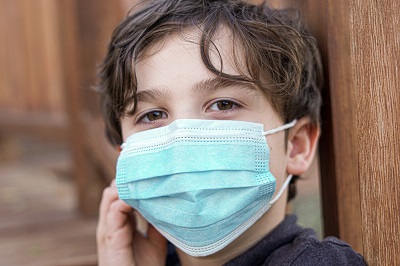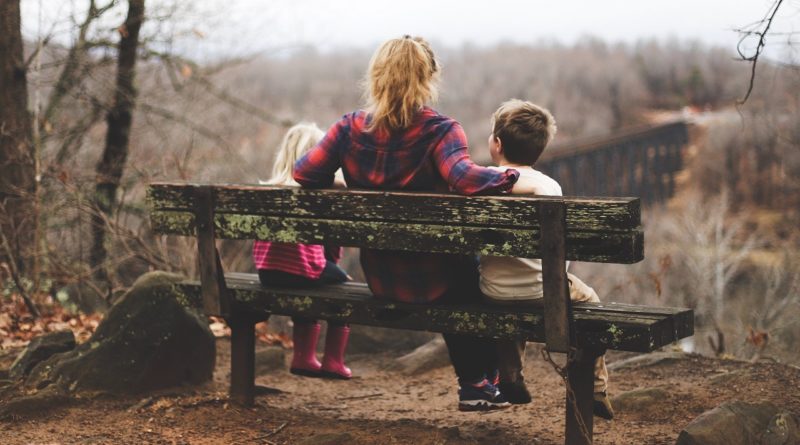Q&A Time with Local GP
M&D Magazine: Considering the fact that mental health has become a more frequent topic of discussion since the beginning of the pandemic, are children more aware of mental health problems than in previous years?
Laura Clark: Mental health for children and young people has been on the agenda for the education and health sectors for a number of years. However, in light of the unprecedented way in which we have been living for over a year, the number of mental health problems is higher than ever before and more work is being done in response to that. Recent events such as Mental Health Awareness week have highlighted the cause, with lots of events taking place in schools. It is now compulsory for all schools to teach pupils about mental health and wellbeing as part of their health and relationships programme, so naturally mental health awareness amongst children is on the increase. Children are learning that mental wellbeing is a normal part of daily life and why simple self-care – like getting enough sleep and spending time outdoors and with friends – is important. With all this in mind, I think most children are now more aware of mental health and are learning some self- care and coping strategies, even from an early age.
M&D Magazine: During a time when worry and stress have become normal features of daily life, how can parents distinguish between a ‘normal’ level of pandemic-related anxiety and the symptoms of clinical anxiety disorders in their children?
Laura Clark: A lot of children respond well to routine so naturally behavioural changes have become more common following the disruption which came with home schooling. Since the return to school, some children will have felt positive, as friendships were re- established and loneliness was eased. Others may be showing persistent changes in behaviour that have not eased with reassurance, and symptoms that are starting to get in the way of every day life; these are signs that anxiety has become a problem.
Examples of such symptoms may include:
• not sleeping, or waking in the night with bad dreams.
• frequent abdominal pain or headaches
• reluctance to go to school, appearing withdrawn
• difficulty concentrating
• not eating properly.
• quickly getting angry or irritable, and being out of control during outbursts.
• constantly worrying or having negative thoughts.
• feeling tense and fidgety, or using the toilet often.
M&D Magazine: Do you have any advice for parents of children with existing mental health problems (eg, OCD, anxiety) which may have been exacerbated by the pandemic?
Laura Clark: It goes without saying that children with existing mental health difficulties may have had worsening symptoms over the last year. Things that can help include:
 1. Acknowledgement
1. Acknowledgement
Acknowledge what is happening by gently letting children know that you can see they are struggling. It is important for them to know and hear that from you.
2. Talking
Talking about their feelings is the first step towards getting them better. Ask if they want to talk about how they feel. For older children, you could suggest someone else to talk to if they are not keen to speak with a parent, e.g. another relative, teacher, friend, counsellor or helpline. Some children find it easier to talk when occupied with another activity at the same time
3. Distraction
Finding things to do in order to distract them from negative feelings may be helpful. Things to try include :
a. creative hobbies
b. getting outdoors
c. being active – walking, sports.
d. meeting with friends
e. playing a game
f. finding something to do that makes them laugh – a silly game or funny tv programme
4. Routine
Sticking to a routine (regular meal times and bed times, for example) helps to reassure children and make them feel safe and secure.
5. Eating well
Fresh (where possible), brightly coloured whole foods can help us feel better. Having a diet that is well-rounded and nutrient-rich can improve mood, increase energy levels and help you think more clearly. See if the children would like to get involved in food preparation – lots of adults bake and cook for pleasure, the same can apply to children and young people.
6. Getting help
If you are concerned about your child’s mental health and you think they need professional support, speak to the school and your GP about the best next step. While demand for GP appointments is higher than last year, check if your practice has online consultations, as this may be an easier way to start the process. You can find information on your GP practice website and if they have that service you can write down your concerns and avoid the rush and long waits associated with peak times on the phone first thing in the morning. You can let your GP know your preferred way to set up an appointment e.g. online reply, telephone or face to face appointment.






